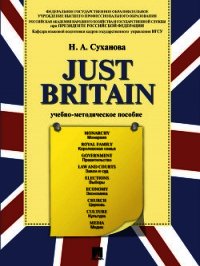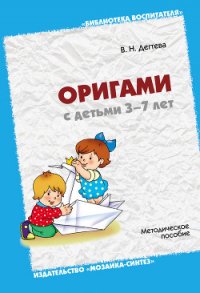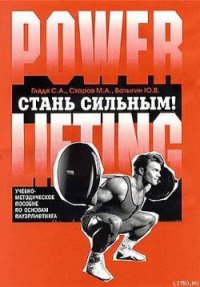Just Britain. Учебно-методическое пособие - Суханова Надежда (бесплатные онлайн книги читаем полные версии .txt) 📗
Жалоба
Напишите нам, и мы в срочном порядке примем меры.
Just Britain. Учебно-методическое пособие - Суханова Надежда (бесплатные онлайн книги читаем полные версии .txt) 📗 краткое содержание
Учебно-методическое пособие Just Britain предназначено для бакалавров факультета «Зарубежное регионоведение» и может быть рекомендовано для изучающих английский язык как первый, так и второй иностранный для углубления фоновых знаний в области страноведения. Вниманию обучающихся представлены тексты, подобранные из оригинальных источников – средств массовой информации и из международных справочных материалов. Цель пособия: ознакомить учащихся с политическим устройством Великобритании, ее экономикой, судебной системой, средствами массовой информации, рассказать о проблемах защиты окружающей среды и культуры. Тексты снабжены заданиями, предусматривающими дальнейшее самостоятельное изучение проблемы бакалаврами и их живое участие в дискуссиях.
Just Britain. Учебно-методическое пособие читать онлайн бесплатно
Н. А. Суханова
JUST BRITAIN
Учебно-методическое пособие
Introductory word
There is no need to explain how important it is today to know foreign languages. Communication has never been an easy thing, even between the people who have an enormous background of shared values and experience. Even if you are talking directly and clearly to them, they may not be hearing you. Misunderstanding is often caused by misinterpreting. Even if you know the words, and phrases, and grammar, and prepositions, sometimes “it does not ring the bell”. Without knowing the background, the people’s history and culture, their humor and their patterns of values, you will unlikely bring your idea to the opposite mind. Learn the roots, the nation’s mentality, way of life. The in-depth study of the nation of the language you study will contribute tremendously to your communication with people.
I. Incursion into ancient history
The history of Britain could be traced from the period between the departure of Romans and the establishment of the Saxon kingdoms. The proud Romans of the early centuries of our era habitually spoke of Britain as “on the edge of the habitable globe”, by which they meant outside the civilization of the Mediterranean world.
The peoples speaking a Celtic language were the earliest Britons of whom we have written records. Strictly speaking the term “Celtic” is a linguistic one, and refers to a branch of the Indo-European languages. There is no “Celtic race or group of tribes”, or any “Celtic area”. The Celtic languages have probably been spoken in the British Isles for more than three thousand years. Theу were brought by newcomers, perhaps already in the Bronze Age before 1000 B.C.
At the time of the Roman Conquest Britain herself was divided into a large number of independent Celtic kingdoms, each ruled by its own royal house. The Roman Conquest did not change the population or the Celtic tribal units, nor the language of the people as a whole. The history of Occupation and final withdrawal suggests that the Celtic way of life, the economy of the country, continued more or less unbroken apart from a sharp increase of civilization in the part of the country facing the Continent in the south-east. Here towns and villas, in which Latin was spoken to some extent, were added to our map. True architecture, monumental sculpture, fresco painting, mosaic work were new arts brought from Rome, and amenities such as plumbing with a steady water supply were introduced. The official religion was Roman, first the Roman pantheon, then Christianity. But the native Celtic religion lingered and was fused with Roman cults. To the last, Britain remained a remote province of the Roman empire, habitually referred to as “a country of the setting sun”, remote from our world.
The Romano-British fusion, which had been achieved through the long period when Britain formed part of the Roman Empire, and the continuity of British native life were the basis on which Britain now had to build up her independent existence from within, and to resist disintegration and conquest from without. Commercial towns, such as London, and the coloniae, originally Roman civic urban settlements of retired troops, undoubtedly had permanent executive body. These, what we may call “city states”, had become sufficiently Romanized to be able to carry on a form of organized civil life.
In the fifth and sixth centuries Britain became the centre of a large-scale maritime activity in which she herself took an important share. The Irish sea and the waterways to the north appear in our traditions as a busy intersection of sea-routes. The Celtic peoples were essentially habitual seafarers, with simple but fully adequate sea-going vessels. Under these conditions, a migration from south-western Britain into Armorica, the westernmost peninsula of Roman Gaul, established a British-speaking population overseas, the nucleus of modern Britanny, and the first colony. An interesting glimpse of the seafaring activities of the Celtic people of this period is a little Celtic settlement and the establishment of a Celtic Church and monastery in Galicia.
The intellectual life of the people is most clearly seen in their literature. The art of writing in the Latin alphabet had been introduced into Britain in Roman times, when the country became nominally Christian. Originally the literature of the Celtic peoples of Britain was oral. This ancient art of oral literature was guarded and cultivated by a highly privileged class in every court. We find mentioning about druids in Caesar’s works who were responsible for the education of the young nobility. The institution of druids, according to him, originated in Britain. In later times the reference to the druids are confined to Ireland, where they figure in the early sagas as possessed of supernatural powers, especially in prophecy. They hold a high position at the courts, in general one only residing in any court. In the early British courts it is believed that the bard’s most important function was that of custodian of the genealogies. In countries with no written laws, or charters, or wills, genealogies were the only guarantee of the right to a share in land, and of the right to inherit. Where there were no newspapers or leading articles, all political and personal propaganda was in the hands of the court poets. It is not surprising that traditions have come down to us of bards who have killed themselves on the death of their lord1.
TASKS
1. Find the following words and word combinations in the text and translate them into Russian. Think of possible explanations of the notions. Pay attention to prepositions.
– to be traced from the period
– on the edge of the globe
– strictly speaking
– to refer to a branch of
– amenities such as plumbing with a steady water supply
– religion lingered and was fused with
– to resist disintegration
– conquest from without
– Roman civic urban settlements
– permanent executive body
– a large-scale maritime activity
– a busy intersection of sea-routes
– the ancient art of oral literature
– the reference to the druids
– in the early sagas as possessed of supernatural powers, especially in prophecy
2. – Ask questions on the plot of the text and think over a plan for a story.
– Compose a story of your own, covering the contents of the text, adding your own details and characters involved in any historical episode.
– Compose a dialogue between a mass media anchorman and a researcher, studying the British history.
– Compose a summary of a historical event to make a report on a scientific conference.
– Make a story of your own describing a historical event of any time and any nation.
– Make suggestions about intellectual life of the ancient people of Britain.
II. Monarchy of the United Kingdom
The monarchy of the United Kingdom (commonly referred to as the British monarchy) is the constitutional monarchy of the United Kingdom and its overseas territories. The title of the monarch is king or queen. Queen Elizabeth II became monarch on 6 February 1952. The monarch and immediate family undertake various official, ceremonial, diplomatic, and representational duties. As the monarchy is constitutional, the monarch is limited to non-partisan functions such as bestowing honors and appointing the Prime Minister. The monarch is by tradition Commander-in-chief of the British Armed Forces. Though the ultimate formal executive authority over the government of the United Kingdom is still by and through the monarch’s royal prerogative, these powers may only be used according to laws enacted in Parliament, and, in practice, within the constraints of convention and precedent.




